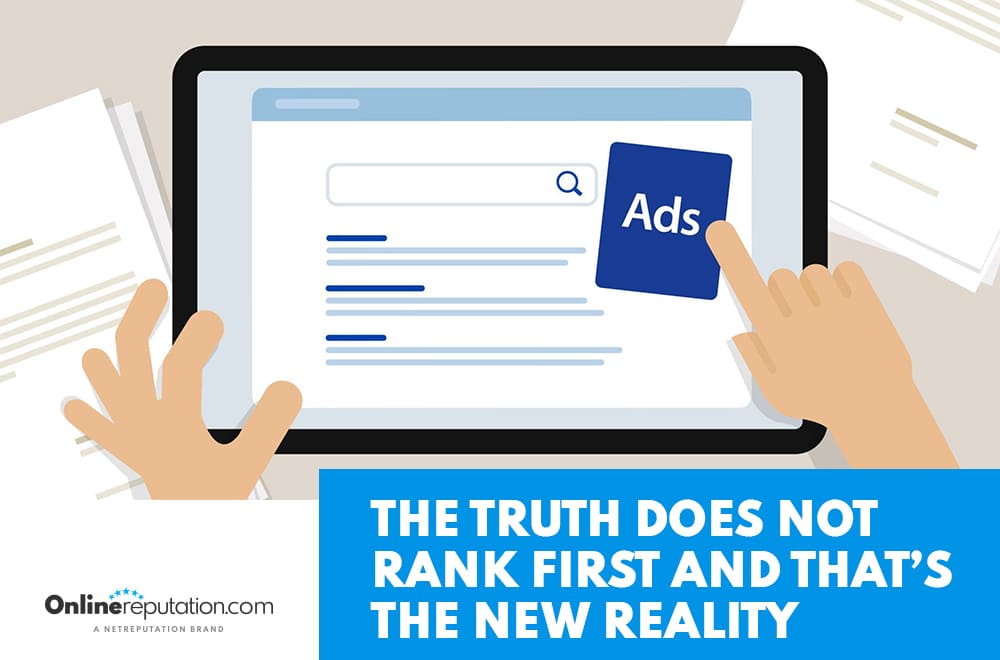
Controlling your digital footprint used to mean watching what you posted on Facebook or avoiding hot takes on Twitter. But that’s no longer enough. Today, your online reputation is shaped more by what others say about you than anything you publish yourself.
From arrest records on background sites to customer feedback and positive reviews on Google, a growing share of your online identity lives outside your control. And while your posts may show your best side, it’s the search engine results, reviews, and third-party mentions that most people see first.
This shift has made reputation management more complex—and more critical—than ever before.
You’re Not the Only One Telling Your Story
Years ago, online reputation management primarily focused on maintaining your personal accounts. But now, anyone—customers, bloggers, competitors, or even bots—can contribute to how you’re perceived. Review sites, forums, news articles, and online databases all publish content about people and businesses, whether you approve or not.
And arrest records are one of the most damaging examples. These public records are picked up by background check websites and optimized to appear high in search engine results. Even if the charges were dropped or expunged, the impact remains. You don’t need to post anything for your reputation to take a hit.
This makes reputation a full-contact sport. It’s no longer enough to manage what you post—you must also respond to what others share, flag, or amplify.
Arrest Records: A Reputation You Didn’t Choose
Arrest records are often published without consent and rarely include full context. Even if the case was dismissed or the arrest was decades ago, the record can appear prominently in a Google search. That single listing can become more visible than your website, your social media, or your most polished LinkedIn profile.
These records can:
- Lower trust with potential customers
- Raise red flags for employers or business partners
- Trigger judgment from people who don’t know the full story
And since many background websites profit from clicks and visibility, they rarely remove content voluntarily.
This is why reputation management professionals often start with suppression, legal takedown strategies, and ongoing monitoring. You can’t ignore what the internet remembers—even if it’s unfair.
The Rise of Third-Party Reputation
Even beyond arrest records, your reputation is increasingly shaped by:
- Online reviews: A single bad Yelp or Google review can override 100 positive experiences if it appears at the top.
- Negative news stories: Articles, blog posts, or media coverage—accurate or not—can dominate search results.
- Forum threads or Reddit posts: These platforms can amplify rumors or complaints faster than you can respond.
The internet doesn’t just broadcast your voice—it aggregates everyone else’s, and those voices now carry just as much (if not more) weight.
How to Regain Control When You’re Not in Control
You may not be able to control everything that appears online, but you can control your response to it. Here are effective ways to start reclaiming your reputation:
1. Monitor Mentions Proactively
Use tools like Google Alerts, Mention, or BrandYourself to track your name, brand, or business across the web. Regularly search for variations of your name or company name. This allows you to respond promptly to negative comments before they spread, helping you manage consumer sentiment and protect your credibility.
2. Request Removal or Suppression
If outdated or misleading arrest records appear, contact the site directly to request removal. If that fails, reputation management firms can take legal or SEO-based actions to suppress those links in search engine results, giving you a market advantage by pushing negative content down.
3. Flood the Zone With Positivity
Create high-quality, honest content that accurately reflects your values, success stories, and contributions. Blog posts, case studies, testimonials from happy customers, press features, and social media campaigns help shift the narrative. More positive content means more control over what your audience sees.
4. Engage With Reviews—Especially the Bad Ones
When customers leave feedback, reply promptly. If they’re negative, offer solutions and show your commitment to improvement. If they’re positive, thank them publicly. This demonstrates your dedication to customer satisfaction and builds trust with your followers and potential customers.
5. Work With Experts When It Gets Complex
For businesses or individuals facing arrest-related search results, legal threats, or widespread negative publicity, a reputation expert can be the difference between public recovery and permanent damage. These teams specialize in creating positive news, engaging SEO strategies, and removing or suppressing harmful content.
Reputation Isn’t Static—It’s an Ongoing Conversation
Think of your online reputation like a live conversation. You can’t script what everyone says—but you can shape the tone, reinforce your message, and step in when the conversation takes a turn.
Whether you’re a business trying to attract new customers or an individual protecting your career prospects, the internet no longer waits for your input. It forms opinions based on:
- What others post
- What shows up first in sthe earch
- What isn’t addressed at all
That means your reputation today might be less about who you are and more about what people find.
Don’t Wait for a Crisis to Act
Too many people only think about their reputation after something negative surfaces. But by then, the damage is already done. Reputation isn’t about cleaning up messes—it’s about building trust before the mess ever appears.
If you care about your business, your name, or your future, start managing your online reputation like it’s your most valuable asset—because it is.
You might also like
The Truth Does Not Rank First and That’s the New Reality
Controlling your digital footprint used to mean watching what you posted on Facebook or avoiding hot takes on Twitter. But …

